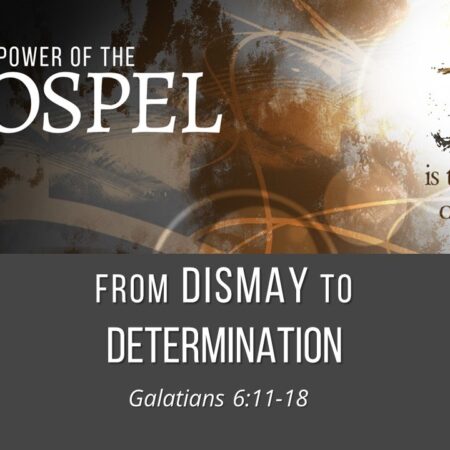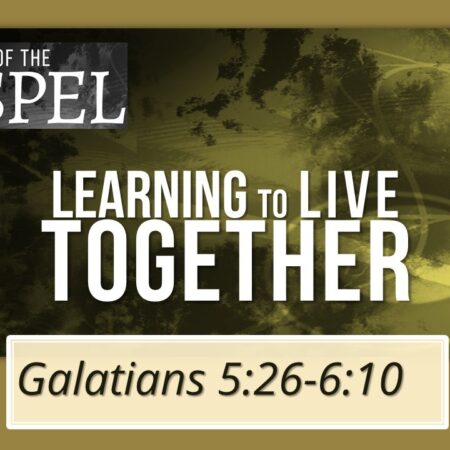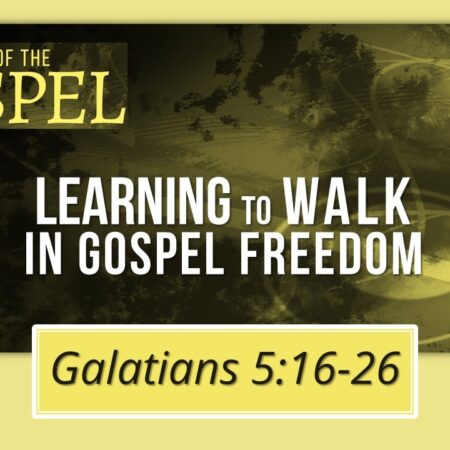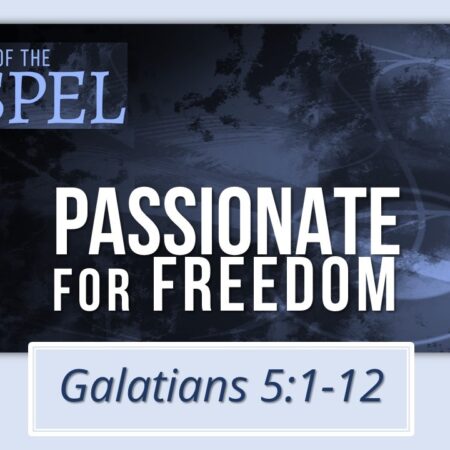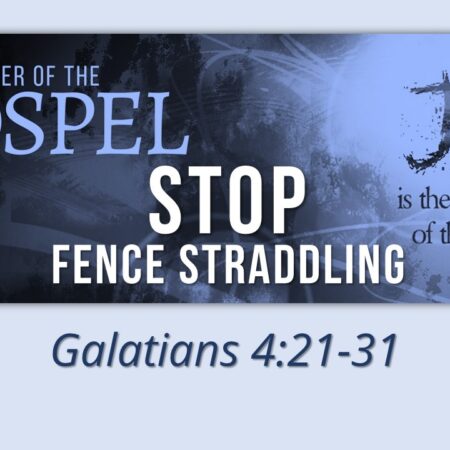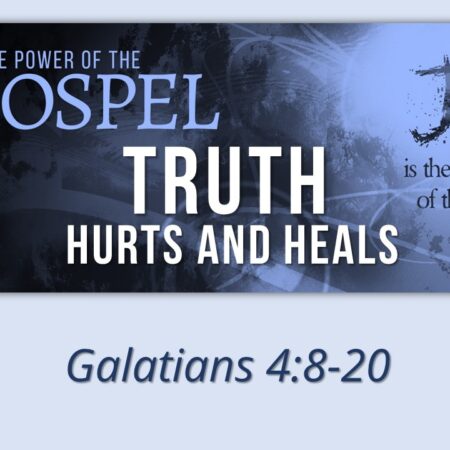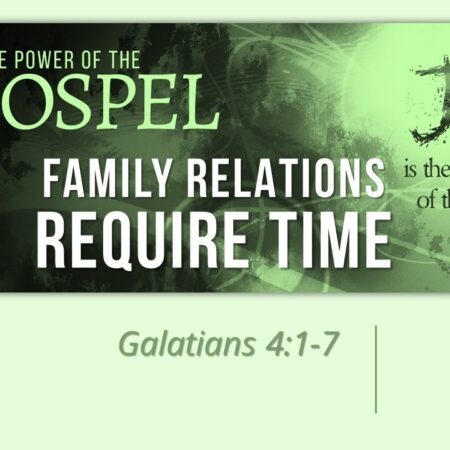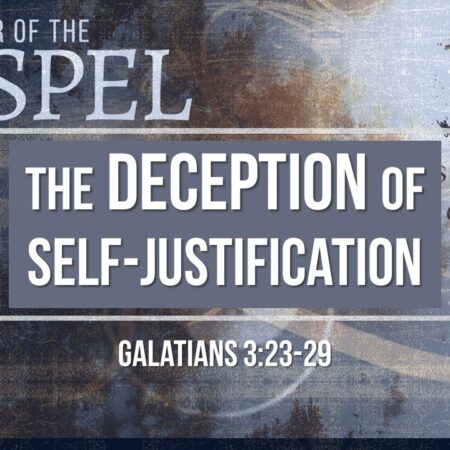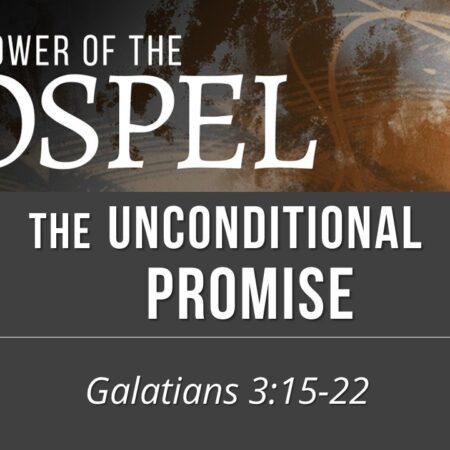John 1:14 Galatians 1:1-9 1 Corinthians 15:1-6 Galatians 2:3-5 Galatians 2:16 Galatians 3:10 Philippians 1:21 Galatians 2:20 The Solid Rock My hope is built on nothing less, than Jesus blood…
Sermons on Galatians
Here is a definition what dismayed really means.
Dismay is defined as a sudden or total loss of courage. An example of dismay is feeling defeated after applying to dozens of jobs and being offered none of them.
As Chuck Swindoll once pointed out:
“This numbers game is one of the most fleshly games congregations can play. Another game we play is the glitz-and-glamour game. The bigger and flashier our Sunday morning productions, the more we feel like we’ve worshiped to the max! But bright lights, loud bands, big budgets, huge crowds, and hyped-up emotional responses mean ntohign if they lack real substance. How easy it is to boast in the flesh, focusing on the outward actions rather than the inward reality.”
This proves the point of Galatians:
Not only is the sinner saved by grace, but the saved sinner also lives by grace.
Here is what Chuck Swindoll has to say about this subject:
“This simple yet important command represents a transfer of the control of our lives from ourselves to the living Lord. But being filled with the Spirit does not end in a private realm or some mystical experience. It’s not about speaking in strange tongues or performing miraculous signs and wonders. It’s not even about having some kind of emotional response or a profound encounter with the Master. Biblically speaking, being filled with the Spirit primarily affects our relationships WITH OTHERS.”
Love one another (John 15:12, 1 Peter 1:22)
Accept one another (Romans 15:7)
Care for one another (1 Corinthians 12:25)
Be kind to one another (Ephesians 4:32)
Comfort one another (1 Thessalonians 4:18)
Encourage one another (1 Thessalonians 5:11)
G. Walter Hanson notes that:
«the verb RESTORE calls for spiritual therapy so that a broken member of the body can once again work properly and perform its vital functions for the benefit of the whole body.”
Tony Evans says it this way:
“To find restoration or to restore someone spiritually, you need to understand what being spiritual is. “Spiritual” in this context means seeking God’s assessment of the problem, allowing God both to define the problem and to provide the solution.
A spiritual solution comes when the Holy Spirit illuminates God’s truth from His Word in your heart, your mind and your life.
A spiritual approach to life’s addictions and sins is needed because the outward symptoms aren’t typically the underlying cause.
Many times we want ot help people out of a circumstance without identifying the spiritual root of the problem. But if the spiritual is the cause, the spiritual must be the cure.
A snare is always rooted in the spiritual cause because the root of any snare is Satan, our flesh or both.
Healing is restored by addressing the SOURCE, NOT THE SYMPTOMS. To get to the source, we need to have a spiritual approach to restoration.”
F.F. Bruce comments on this problem:
“What Paul stresses here is personal responsibility. It is not for one Christian to assess or judge the ministry of another; each one is answerable to God for his own.”
Let me quote commentator G. Walter Hansen one more time as he points out the difference between to Greek words Paul uses: “Burden” (baros) in 6:2 and “load” (phortion) in 6:5
“Though these two words are basically synonymous in other contexts, the change of nouns in this context indicates a change of reference. Verse 2 refers to the need to come to the aid of others who cannot carry the crushing burden of the consequences of their sin. Verse 5 refers to work given to us by our Master, before whom we will have to give an account of how we used the opportunities and talents he gave us to serve him.”
HOW CAN WE WIN THIS WAR? The solution is SURRENDER TO THE HOLY SPIRIT.
The Issue here is CONTROL. To whom do we surrender? To the fleshly desires (self) or to the Holy Spirit?
It is here were we many times get confused. Too many Christians doubt the assurance of their salvation because of this intense struggle with sin. But let me tell you that the very fact that you care about the struggle is a sign that the Spirit is working in you. If the Holy Spirit was not fighting this battle on your behalf, you would not care one bit about struggling against sin.
This is important to understand. When we are fighting this battle of surrendering to the control of the Holy Spirit, we often get approached by well meaning Christians with the suggestion that we should just retreat into legalism. They never use this term, but instead telling us that our battle with sin is because we are NOT DOING ENOUGH FOR OUR LORD. IF WE WOULD BE BUSY we would have not time to get involved in sinful behavior. THAT’S ANOTHER WAY OF SAYING THAT OUR BUSYNESS HAS BECOME OUR POWER OVER SIN. That’s contrary to the Gospel. THE HOLY SPIRIT living in us gives us power over sin. There is simply no Substitute for the Holy Spirit.
Biblical Scholars divide those deeds into four major subjects:
• Sexual sin:
This includes things like adultery, fornication, homosexual practice, prostitution, and pornography.
• Religious sin:
This includes things like occult involvement, false religions, New Age spirituality, superstition, and idolatrous materialism.
• Social sin:
This includes things tat are destructive to our families, churches, and communities, such as slander, gossip, harboring bitterness, bearing grudges, taking revenge, and physical or verbal abuse.
• Personal sin:
This includes sins against one’s own body, such as drug addiction, workaholism, alcoholism, gluttony, and other forms of self-destructive behavior.
• Would you say that the Apostle Paul is passionate about our freedom in Jesus Christ?
• Would you say that the Apostle Paul is willing to fight for this freedom?
• Would you say that the Apostle Paul is fully aware that some people try to snatch that freedom in Jesus Christ from the Believers?
Chuck Swindoll in his commentary on this text is asking three probing questions which all of us need to answer somehow:
HOW HIGHLY DO I VALUE MY FREEDOM IN CHRIST?
Does it mean more to me than money, home, family, friends, job, or reputation? Do I compromise on Christian freedom in order to fit in at church, among my Christian friends, or at my job? Do I succumb to the slavery of legalism, submitting to human rules and regulations?
HOW STRONGLY DO I RESIST HAVING MY FREEDOM STOLEN?
Do I submit to rules that strap me down spiritually, stopping or even reversing my Christian growth? Do I actually check the bases for the accepted Christian norms fed to me at church, at home, or from other sources? When was the last time I took a firm stand against legalism?
HOW TOLERANT AM I OF OTHER CHRISTIANS AND THEIR EXERCISE OF FREEDOM?
Do I insist that fellow believers adopt my personal preferences on nonessential matters? Or do I flaunt my freedom in front of those with weaker consciences?
Once we’ve thoroughly examined our zeal for freedom, we need to exercise it! Every day is a new opportunity to live and breathe the liberty Christ has provided. Don’t lose your freedom. Don’t give it away like the Galatians did. Don’t fall under the influence of legalism. Let grace be your way of life.
Chuck Swindoll has this to say about those who think and live that way:
“Believers caught in the yoke of legalism always search for partners to share the burden with them, recruiting more converts to the cause of slavery. The more legalists attached to the chain gang, the better – that’s their mentality.”
David Zahl wrote a book titled: Seculosity: The subtitle says: “How Career, Parenting, Technology, Food, Politics, and Romance became our New Religion and what to do about it.”
“At the heart of our current moment lies a universal yearning, not to be happy or respected so much as ENOUGH – what religions call “righteous.”
To fill the void left by religion, we look to all sorts of everyday activities – from eating and parenting to dating and voting – for the identity, purpose, and meaning once provided on Sunday morning.
In our striving, we are chasing a sense of ENOUGHNESS. But it remains ever out of reach, and the effort and anxiety are burning us out.
Seculosity takes a thoughtful tour of American “performancism” and its cousins, highlighting both their ingenuity and mercilessness, all while challenging the conventional narrative of religious decline.
Zahl unmasks the competing pieties around which so much of our lives revolve, and he does so in a way that’s personal, and incisive. Ultimately he brings us to a fresh appreciation of the grace of God in all its countercultural wonder.”
Now, let me give you three snippets from this bock:
“Our religious crisis today is not that religion is on the wane, but that we are more religious than ever, and about too many things. We are almost never NOT IN CHURCH.”
“We may be sleeping in on Sunday mornings in greater numbers, but we’ve never been more PIOUS.” Let me give you a definition of the word “Pious”: “devoutly religious, making a hypocritical display of virtue; which means being: insincere, self-righteous, holier-than-thou, churchy…..” (English Dictionary)
“The marketplace in replacement religion is BOOMING.”
The Apostle Paul gives us three consequences of living a lifestyle of legalism:
1. Christ will be of no advantage to you. (verse 2)
2. You will be obligated to keep the whole law. (verse 3)
3. You will be alienated from Christ’s grace (verse 4)
C.S. Lewis in his book THE GREAT DIVORCE wrote these powerful words:
“There are only two kinds of people in the end: those who say to God, “Thy will be done,” and those to whom God says, in the end, “Thy will be done.”
C.S. Lewis in “THE SCREWTAPE LETTERS” writes:
“The safest road to hell is the gradual one – the gentle slope, soft underfoot, without sudden turnings, without milestones, without signposts… The long, dull monotonous years of middle-aged prosperity or middle-aged adversity are excellent campaigning weather (for the devil).
Paul comes full circle. Making his point once again that just as Isaac was supernaturally born AS A RESULT OF GOD’S PROMISE, so all Christians are “born-again” as a RESULT OF GOD’S PROMISE that all nations would be blessed through Abraham. (Genesis 22:18).
Not everybody in the church or outside the church likes that truth. Paul wants the people In Galatia to know that this introduces us to a spiritual conflict of major proportion.
Final thoughts
• We should expect to be persecuted by religious people.
It has been this way throughout history, beginning with Jesus himself. The religious leaders of His day opposed, mocked, condemned, and eventually executed the true Seed of Abraham.
The Judaizers made life and ministry difficult for Paul and all those who, like him, took a stand for the freedom that comes through grace.
During the Reformation, Popes and kings brutalized Protestants who took a stand on the doctrine of salvation by grace through faith.
In our own day, legalistic Christians who have never experienced the sweet liberation of grace can make the Christian life a miserable experience for true believers, overwhelming them with an endless, uncompromising list of dos and don’ts.
Therefore when it comes to law and grace, we have to get off the fence. We can’t fluctuate between rules and faith, mixing them in our approach to God. He won’t allow it.
• Man-made religion is incompatible with God’s grace.
Hagar and Ishmael symbolize human attempts to achieve what God only God can do. Just as Hagar and Ishmael were cast out of Abraham’s household, so must works-oriented religions and beliefs be removed from God’s family (Galatians 4:30).
Once we stop fence straggling, we will realize that free life can’t survive the structured demands of rule-centered living. Conversely, law keeping can’t maintain a grip on the truly liberated life. As Christians, we are called to a life of freedom.
Chuck Swindoll writes:
Paul’s situation is relevant for us today. Teaching the Scriptures often means communicating truth to people who don’t want to hear it. In fact, those who once appreciated your teaching may turn on you and hate you for it. G.Walter Hansen draws out the implications of this reality for both pastors and congregations:
“The dramatic shift from the Galatians’ warm welcome to their cold rejection of Paul serves as a sober warning to both pastors and their churches. Pastors should not be so naïve as to think they will always receive a warm welcome if they consistently teach the truth. In fact, teaching the truth will always run the risk of alienating some people. And people in the church need to be aware that their initial positive response to pastors who teach the truth will be severely tested when the truth cuts like a two-edged sword. During such a time of conviction, people need to maintain their loyalty to their pastors precisely because they have the courage to preach the truth even when it hurts.” G. Walter Hansen
“Don’t Wrestle, Just Nestle” – Corrie Ten Boon
Charles Spurgeon, in a sermon on Romans 5:20 declared:
“There is no point of biblical interpretation and application where men make greater mistakes than the relationship which exists between the Law and the Gospel…..some put Law instead of the Gospel, some modify the Law and the Gospel and therefore preach neither Law nor Gospel.
If men blend the Law with the Gospel or Faith with Works (which is the same thing), especially in the area of Justification, they will obscure the glory of redeeming grace and prevent themselves and others from having the real joy and peace in believing. They will also retard their progress in holiness.
Ah! But if men, under the influence of the Holy Spirit, are able to see the glory of the whole plan of Redemption – if they are able to reconcile the passages of Scripture which seem contrary to each other (and there are some) they would ADVANCE IN TRUE HOLINESS AND SPIRITUAL CONSOLATION.
To see the glory of the whole would be means to calm the conscience in times of mental and spiritual trouble. You see, a troubled conscience cannot properly quieted unless the Gospel is rightly distinguished from the Law; on the other hand, there will be no troubled conscience to be quieted without the Law.” Charles Spurgeon
Ernest C. Reisinger I his book titled ”The Law and the Gospel” says it this way:
..”If then a man cannot distinguish the law from the gospel, he cannot rightly understand so much as a single article of divine truth. If he does not have spiritual and just apprehensions of the holy law, he cannot have spiritual and transforming discoveries of the glorious gospel. And if his views of the gospel are wrong, his notions of the law cannot be right.”
THIS NEW RELATIONSHIP AS CHILDREN OF GOD IS MORE THAN POSITIONAL; IT IS ALSO EXPERIENTIAL.
• Simplicity
Uncluttering our lives and minds from things that distract us from God
• Silence and solitude
Slowing our pace and making space in our schedules for God
• Surrender
Releasing our grip on things that take our attention from God
• Prayer
Calling out to God with our praise, thanksgiving, and petitions
• Humility
Bowing our entire lives before the will of God
• Self-control
Holding back our own priorities in favor of God’s priorities
• Sacrifice
Giving up the things God expects us to surrender to Him
The Purpose of the Law:
• The Law acted like a prison for men.
• The Law accuses and condemns men. As soon as a person violates the law, the law charges him.
• The law has no life and no power to deliver man from the punishment due him for his violation.
That’s exactly what the Apostle Paul is saying here in our text:
The law reveals the violation and condemns man, it imprisons him; it holds him captive.
• The Law was a schoolmaster or guardian
The English playwright and poet Dorothy Sayers in her book “Creed or Chaos?” published in 1949, is wondering why the churches had exchanged the Greatest Story Ever Told for bland moralism:
“Official Christianity, of late years, has been having what is known as “a bad press.” We are constantly assured that the churches are empty because preachers insist too much upon doctrine – “dull dogma,” as people call it. The fact is the precise opposite. It is the neglect of dogma that makes for dullness. The Christian faith is the most exciting drama that ever staggered the imagination of man – and the dogma IS the drama….
This is the dogma we find so dull – this terrifying drama of which God is the victim and the hero. If this is dull, then what, in Heaven’s name, is worthy to be called exciting? The people who hanged Christ never, to do them justice, accused Him of being a bore – on the contrary; they thought Him too dynamic to be safe.
It has been left for later generations to muffle up the shattering personality and surround Him with an atmosphere of tedium. We have very efficiently pared the claws of the Lion of Judah, certifying Him “meek and mild” and recommended Him as a fitting household pet for pale curates and pious old ladies.” Dorothy Sayers (1949)
Carl Teichrib in his book “Game of Gods” describes it this way:
“The one before Eve is shrewd and deliberate, showing an exceptional understanding of the human propensity to rationalize. The serpentine-dragon imagery is a powerful expression of his very potent nature. In the Garden he comes TO DIALOGUE, TO QUESTION AND TEST, and to masterfully engage in the salesmanship of self-justification.
It started with a simple yet suggestive question: “Has God indeed said, “You shall not eat of every tree of the garden?” The query INTROUDCES DOUBT.
Eve responded by confirming God’s admonition, but a seed had been planted in her mind.
“You will not surely die,” was the response given to Eve. “For God knows that in the day you eat of it your eyes will be opened, and you will be like God, knowing good an evil.”
THE BENEFITS OF PARTAKING APPEARED TO SURPASS THE COST.
Life would go on, wisdom was to be granted, and the human status would be elevated. This “knowledge” allowing one to apparently become as Yahweh Himself, WOULD ACHIEVE A GREATER GOOD.
Enlightenment was before them. Following the angelic advice, they engaged in the act of taking and eating, the first TECHNIQUE of human-proclaimed SELF-DIVINITY.
In so doing, they discovered the tempter had wiled them with a HALF-TRUTH. Immortality vanished and the idea of becoming “as God” proved illusionary. Of course, the truth-part was we experientially and spiritually entered the realm of the ‘KNOWLEDGE OF GOOD AND EVIL.”
We had now tasted its capability, but as the Garden incident demonstrated and human history shows, we were personally and collectively unable to control its capacity. IT CONTROLS US.
While acts of goodness are open to us, we have nevertheless been plagued by “divine nightmares” – kings and powers and nations “playing God” against one another.
What is Responsibility?
The Swiss Theologian Emil Brunner in his book “Man and Creation” explains it this way:
“Man is, and remains, responsible, whatever his personal attitude to his Creator may be. He may deny his responsibility, and he may misuse his freedom, but he cannot get rid of his responsibility. Responsibility is part of the unchangeable structure of man’s being. That is: the actual existence of man – of ever man, not only the man who believes in Christ – consists in the positive fact that he has been made to response – to God.”
“The human cry of I AM GOD is the first act of identity theft.”
John Stott comments on this verse in his writings:
“Paul’s statement does not mean that racial, social and sexual distinctions are actually obliterated…When we say that Christ has abolished these distinctions, we mean not that they do not exist, but that they do not matter.”
A.W. Tozer (The Knowledge of the Holy; pages 85-87)
“I think it might be demonstrated that almost every heresy that has afflicted the church through the years has arisen from believing about God things that are not true, or from over-emphasizing certain true things so as to obscure other things equally true. To magnify any attribute to the exclusion of another is to head straight for one of the dismal swamps of theology; and yet we are all constantly tempted to do just that.
For instance, the Bible teaches that God is love; some have interpreted this in such a way as virtually to deny that He is just, which the Bible also teaches. Others press the Bible doctrine of God’s goodness so far that it is made to contradict His holiness. Or they make His compassion cancel out His truth. Still others understand the sovereignty of God in a way that destroys or at lest greatly diminishes His goodness and love.
We can hold a correct view of truth only by daring to believe EVERYHTHING GOD HAS SAID ABOUT HIMSELF. It is a grave responsibility that a man takes upon himself when he seeks to edit out of God’s self-revelation such features as he in his ignorance deems objectionable.
Blindness in part must surely fall upon many of us presumptuous enough to attempt such a thing.
We need not fear to let the truth stand as it is written. There is no conflict among the DIVINE ATTRIBUTES. God’s being is unitary. He cannot divide Himself and act at a given time from one of His attributes while the rest remain inactive. All that God is must accord with all that God does. Justice must be present in mercy, and love in judgment. And so with all the divine attributes.”
…Upon God’s faithfulness rests our whole hope of future blessedness. Only as He is faithful will His covenants stand, and His promises be honored. Only as we have complete assurance that He is faithful may we live in peace and look forward with assurance to the life to come.
Every heart can make its own application of this truth and draw from it such conclusions as the truth suggests and its own needs bring into focus. The tempted, the anxious, the fearful, the discouraged may all find new hope and good cheer in the knowledge that our Heavenly Father is faithful.
He will ever be true to His pledged word. The hard-pressed sons of the covenant may be sure that He will never remove His loving-kindness from them nor suffer His faithfulness to fail.”
A. W. Tozer (The Knowledge of the Holy; pages 85-87)
What’s an Unconditional Covenant?
An unconditional covenant reveals that GOD DOES NOT REQUIRE ANYTHING of the human being with which He entered into a covenant.
What’s a Conditional Covenant?
A conditional covenant holds both parties to certain obligations, specifying penalties for breaching the covenant.


